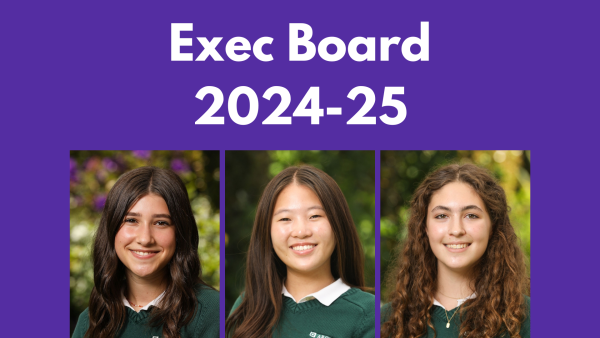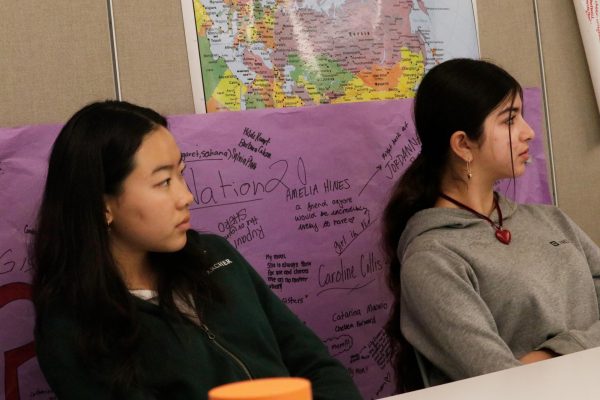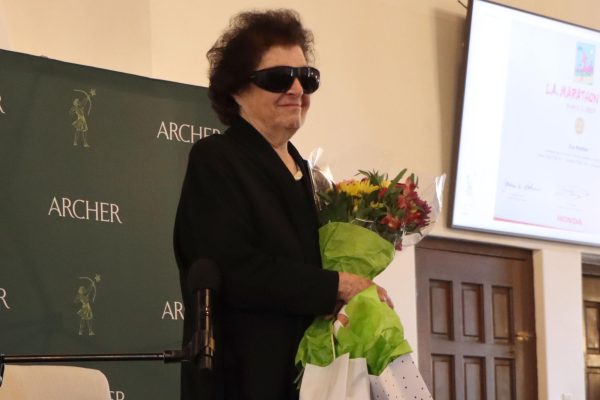APSU presents on joyful culture, recognizes importance of representation in AAPI community
Photo credit: Hana Cho
Sogna Louie (’23), Camila Blank (’24), Emma Verdery (’23) and Isabelle Verdery (’23) teach middle school students about AAPI history, traditions and representation Friday, May 5. This year’s presentation focused on progress and celebration as opposed to anti-Asian racism, which the Asian Pacific Student Union’s presentations have covered in recent years.
May 8, 2023
Purchasing boba from Sunright Tea Studio, watching Academy Award-winning “Everything, Everywhere, All At Once” and listening to indie band Japanese Breakfast‘s music were a few ways the Asian Pacific Student Union suggested middle schoolers support Asian American and Pacific Islander Heritage Month.
APSU presented Friday, May 5, during a Culture and Community Block. To educate the entire student body about AAPIHM, which spans the entirety of May, APSU also presented to the upper school during its Culture and Community Block Monday, May 8. APSU Co-president Dani Fenster (’23) said this year’s presentation was the same for middle and upper school, as its content was more lighthearted than in previous years.
“This year, we’re focusing more on pride, happiness, joy and celebration,” Fenster said. “In previous years, we, out of necessity, had to talk about heavier topics after the pandemic when Asian American hate was increasing so much. This month, we’re bringing the attention to the celebration aspect of the month, so there’s not much we have to change in terms of talking about heavier topics between middle and upper school.”
APSU members Dani Fenster (’23), Sogna Louie (’23), Isabelle Verdery (’23), Emma Verdery (’23), Camila Blank (’24) and Sophia Shin (’25) presented on the history and importance of AAPIHM, as well as current examples of Asian American and Pacific Islander representation in literature, arts and cuisine. Hana Cho (’27) felt the representation aspect of the presentation was necessary for combatting popular stereotypes and misconceptions.
“Asian representation is important because, in the media, Asians are often portrayed as docile, super, super smart or quiet and not outspoken at all, but that’s not the case all the time,” Cho said. “A lot of Asians aren’t like that, and it’s really important to understand that Asian people aren’t just what is portrayed by the media.”
When it comes to the media, specifically music and film, Fenster said she saw a recent uptick in the authentic representation of Asian Americans. APSU’s slideshow included Asian American movies, artists and books, which she said were important to acknowledge overlooked change.
“I’ve noticed in the past few months there’s been a lot of Asian American representation, whether that’s BLACKPINK headlining Coachella or movies coming out that are mainstream [and] have Asian American main characters,” Fenster said. “This is not something we had three, four or five years ago. Bringing that to the attention of non-AAPI students is really important because it is easy to forget the vast differences and progress that’s been made in recent years.”
Cho said the presentation had thorough information about both the Asian American and Pacific Islander populations in the United States. APSU members discussed Hawaiian language, the geography of the Pacific, traditional instruments and celebrities to spotlight history and achievements within the broader Asian American and Pacific Islander community.
“They covered Hawaii, and I really liked that they included the Pacific Islander portion of AAPI Heritage Month because it’s usually forgotten,” Cho said. “It was also really cool to see the different movies, actresses and actors, especially how Sandra Oh incorporates her Korean heritage into her celebrity events like when she took her mom, [who wore] a hanbok to the Emmys.”
Chinese teacher Pei-Ying Gosselin has advised APSU for three out of her 10 years at Archer. She said she believes recognizing AAPIHM contributes to students’ ability to connect with and comprehend varying perspectives.
“[Our students] have more opportunities to connect with people not from their local lenses,” Gosselin said. “In order to understand and communicate with people who are not from your own background, you need to learn about their backgrounds, right?”



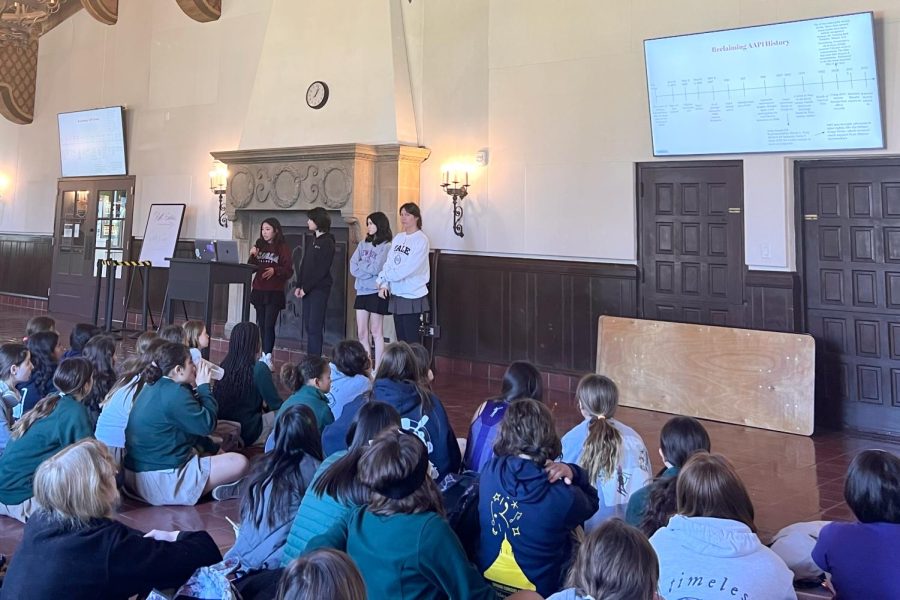
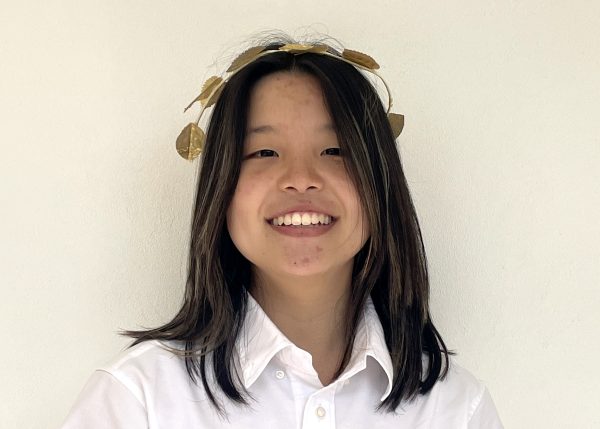





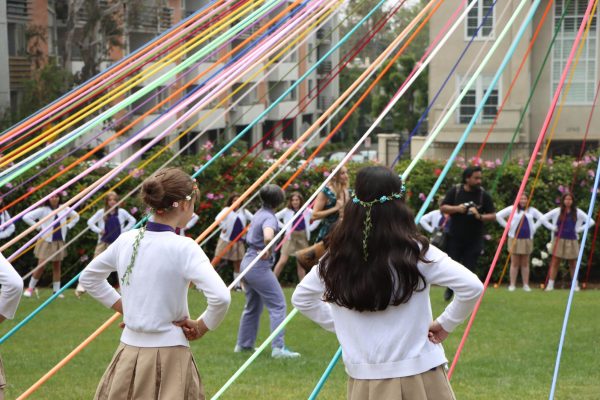

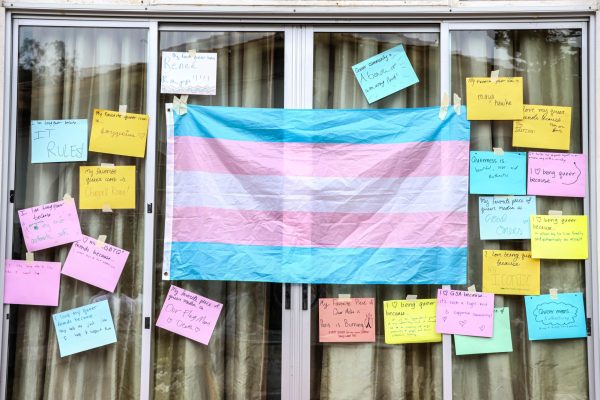
![Seniors laugh as they shoot water across the courtyard, during the annual fountain jump. I [the fountain jump] is really the culmination of your Archer experience, senior Ella Gray said. Especially because youre always around the fountain, at some point, and now you get to be in it.](https://archeroracle.org/wp-content/uploads/2024/05/MG_0817-1-600x400.jpg)
